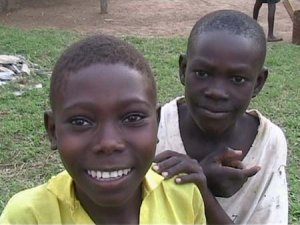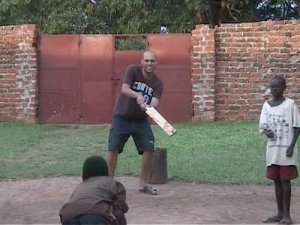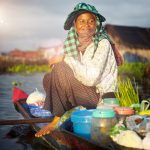 Sport always has an uncanny knack of triumphing over adversity. In a time when security fears and politics are threatening to encroach on our lifestyles, Australians in particular are continuing to ensure that sport remains distinct from such threats. Most recently for example, our Australian cricket captain Ricky Ponting has spoken out in favor of touring Zimbabwe, despite Government pressure not to tour for political reasons. Such a decision should not be underestimated as the power and influence of sport to lift an individual and collectively a nation has been proven several times over. Zimbabwe, the country will benefit from such a tour in many more ways than by simply improving their standing in world cricket.
Sport always has an uncanny knack of triumphing over adversity. In a time when security fears and politics are threatening to encroach on our lifestyles, Australians in particular are continuing to ensure that sport remains distinct from such threats. Most recently for example, our Australian cricket captain Ricky Ponting has spoken out in favor of touring Zimbabwe, despite Government pressure not to tour for political reasons. Such a decision should not be underestimated as the power and influence of sport to lift an individual and collectively a nation has been proven several times over. Zimbabwe, the country will benefit from such a tour in many more ways than by simply improving their standing in world cricket.
On our recent travels to Uganda in East Africa, my wife Joyce and I saw first hand the positive effects sport; in particular Aussie Rules and cricket, can have on people in the third world. Joyce was born in Uganda and was returning to her homeland for the first time since 1984 when fled with her family during the military coup against President Obote. For me, it was only the second time I had ventured out of Australia.
As part of our journey, we decided to travel to the Teso district in the North-East of Uganda where Joyce’s dad was building a house in the village of Sapir, neighboring Brooks Corner.
For the past 17 years or so, The Teso district has been under threat from a band of rebels called the Lords Resistance Army (LRA), lead by a man named Joseph Kony. No one is quite sure what it is the LRA actually stands for. What is known though, is that the LRA are intent on political power and are responsible for a range of atrocities, especially against innocent young children. Whilst we were there last year, the rebels were only a mere fifty or so miles away from where we staying. The town of Soroti had a strong military presence set up to prevent the threat from progressing further South to the nations capital Kampala. Amazingly, with all of this going on around us, in the village itself there was no evidence of any threat and we felt quite comfortable in our surroundings.
During a walk to the shopping village of Brook’s Corner, I was approached by a huge group of school children on their lunch break dressed in their simple yellow uniforms. Word had got out that there was a ‘Muzungu’ (white man) in the village and they wanted to see the evidence for themselves. That afternoon a few more youngsters came around to the house and it dawned on me that they might like to have a game of footy or cricket. With a healthy number of children in the district, we had more than enough participants for both cricket and Aussie Rules footy. Unfortunately, due to a packing mishap, the T.W. Sherrin was left back in Australia for this expedition, so were left to our own devices with regard to equipment. For a ball, we had to make do with tightly packed newspaper strapped with some flexible reeds, which were plentiful in the surrounding tropical bushland. We ended up with a dual-purpose ball, good for both cricket and footy.
 Over the next few days, at the same time every afternoon after school, a growing number of children would come to the house to play. Most of these kids actually lived in the grass huts of the surrounding villages and arrived each day wearing the same torn and dirty uniforms. Whilst their clothes may have been battered, their spirit and enthusiasm for the games were not as most nights we played until pitch darkness.
Over the next few days, at the same time every afternoon after school, a growing number of children would come to the house to play. Most of these kids actually lived in the grass huts of the surrounding villages and arrived each day wearing the same torn and dirty uniforms. Whilst their clothes may have been battered, their spirit and enthusiasm for the games were not as most nights we played until pitch darkness.
Apart from their amazing spirit and joyful nature these kids actually possessed some remarkable skills, picking up the sports
extremely quickly. In particular, their ability to learn the finer points of a game foreign to them without understanding the language was remarkable. Their hand-eye co-ordination was also fairly special, with some kids as young as five or six showing incredible reflexes. These abilities are undoubtedly instinctual as their primary schools are unable to afford sporting equipment even for Soccer, the national Ugandan sport.
When it was time to leave, we found it very difficult as we had become extremely attached to the good-natured people of Sapir, especially the kids who came to the house to play footy and cricket.
Now back at home, and with time to reflect, we understand the real impact that the introduction of and participation in a sport can have on people, especially children from disadvantaged situations.
For now though, we wait until we can return to the village in Uganda, with a footy or two in hand to continue the introduction of Australian Rules football into their community.







Leave a Reply